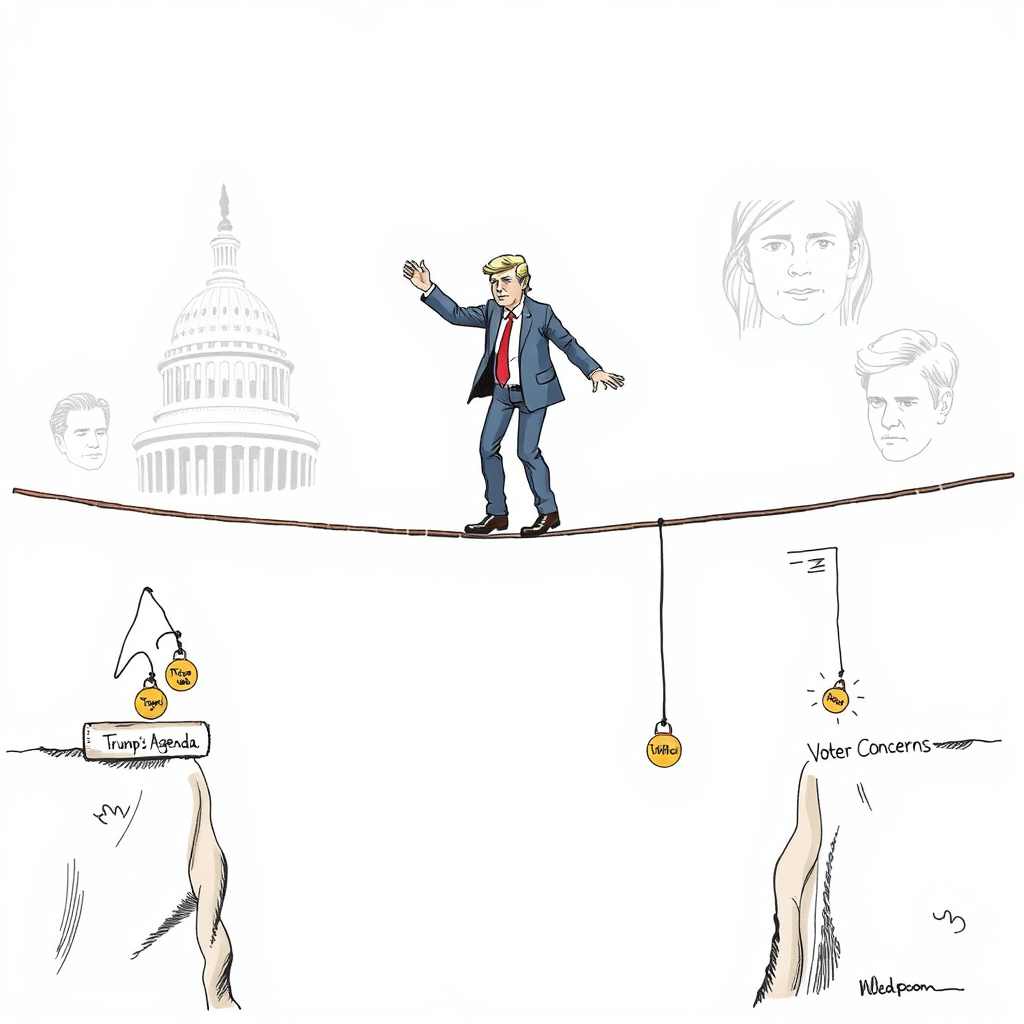GOP Senator Warns Trump Policies Worry Voters

Republican lawmakers are returning to Washington facing constituent concerns over the economic impact of former President Trump’s policies, particularly tariffs, as they navigate a critical period of legislating. Following a break filled with often-contentious town hall meetings, both the House and Senate are now tasked with advancing a substantial spending bill reflecting Trump’s agenda.
CNN’s Manu Raju reports the coming week is pivotal, with months of groundwork laid for drafting a massive bill encompassing tax code revisions, over $1 trillion in spending cuts to federal programs, new immigration provisions, and significant funding for defense and homeland security. Over the weekend, House Republicans unveiled appropriations totaling $150 billion for defense programs and over $47 billion for new border barriers.
Negotiations remain complex, particularly regarding the scope of spending cuts and tax code overhauls, requiring alignment between the House and Senate GOP. Senator John Cornyn (R-TX) revealed that constituents are “concerned about the disruptive nature” of the policy changes, specifically referencing rising prices linked to Trump’s tariffs. While expressing optimism about a potential 90-day pause leading to zero-tariff negotiations, Cornyn acknowledged a period of high inflation, noting a roughly 20% price increase during the Biden administration, alongside temporary increases due to the tariffs themselves.
The legislative maneuvering is also heavily influenced by the upcoming midterm elections. Trump is currently meeting with House Speaker Mike Johnson (R-LA) to assess how upcoming votes will impact those campaigns, recognizing the historical trend of sitting presidents’ parties performing poorly in midterm contests. This political reality is expected to be a major driver of legislative discussions in the coming weeks.
It’s clear that while Republicans are attempting to advance Trump’s agenda, they are simultaneously grappling with the real-world consequences of those policies as voiced by their constituents. The situation presents a delicate balancing act – attempting to appease a base still supportive of Trump while addressing legitimate economic concerns raised by voters. The focus on midterm elections further complicates matters, suggesting political calculations are heavily influencing the legislative process. The acknowledgement of both tariff-related price increases and pre-existing inflation is a nuanced point often missing from partisan debates, highlighting the complex economic factors at play.